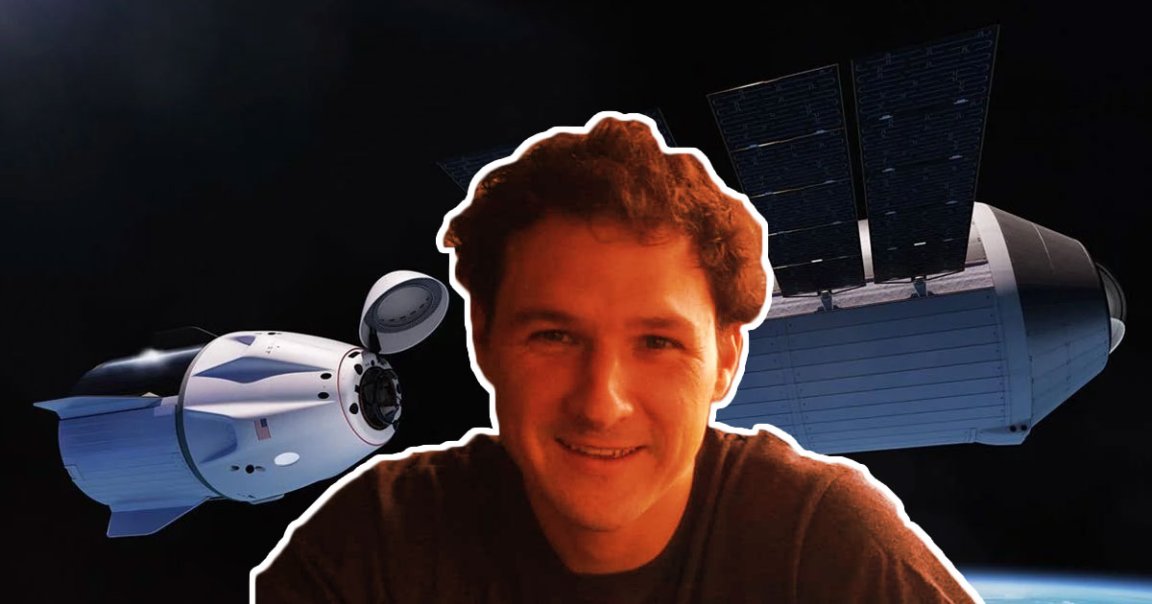
California-based space startup Vast says it’s teaming up with SpaceX to launch the world’s first commercial space station, CNN reports.
Of course, other companies have made similar claims before, and so far, nobody has pulled it off. And it’s probably not helping Vast’s credibility that founder and CEO Jed McCaleb was also involved with the long-defunct bitcoin exchange Mt. Gox, a notorious crypto failure.
That said, at least it sounds like he’s got skin in the game. McCaleb, who was also behind crypto protocol Ripple, says he’s investing $300 million of his own cash with hopes of both launching the station dubbed Haven-1 and the first crewed mission to the outpost.
McCaleb is the company’s only investor, and the company isn’t looking for outside bankrolling until it can generate revenue and has its station built, according to CNN. It’ll likely cost a lot more than $300 million to get off the ground, something McCaleb acknowledged himself.
Did we mention that the timeline is extraordinarily ambitious? The company is hoping to launch the station as early as August 2025, an eyewatering schedule.
In other words, it’s an astronomically ambitious project that’s befitting of a crypto tsar.
Things get even more expansive after the planned station gets aloft, too. Vast’s long-term vision includes a 328-foot “multi-module spinning artificial gravity space station launched by SpaceX’s Starship transportation system,” according to the company’s announcement.
At the very least, McCaleb, who made his fortune in crypto — a field that is wholly unrelated to the private space industry — seems to be aware that it’s a big ask.
“I don’t fault people for being skeptical,” McCaleb told TechCrunch in a recent interview. “I’ve clearly never done anything in aerospace before, so it is a leap.”

Fortunately, Vast won’t have to start from square one. The company is hoping to piggyback off of SpaceX’s already established technologies to get its venture off the ground and is planning to use a Dragon capsule to get passengers to and from the station.
The company’s first portion of the station itself is designed to be built in one piece and fit on top of a SpaceX Falcon 9 rocket as well.
“The Dragon team and the team and leadership (at SpaceX) really want to build a Falcon 9-based space station,” Vast president Max Haot told CNN. “So we’re very, very aligned.”
Haot led space company Launcher, which was acquired by Vast in February.
But whether Vast will be able to turn McCaleb’s not-insignificant investment into a fully-functioning orbital outpost remains to be seen. For one, the billionaire has a bit of a history when it comes to the exchange of large sums of money.
Well over a decade ago, McCaleb funded the Bitcoin trading platform Mt. Gox as a way to buy and sell “Magic: The Gathering” cards. After pivoting to bitcoin, in 2011 McCaleb sold the site to French coder Mark Karpelès.
Three years later, Mt. Gox fell victim to the greatest Bitcoin hack of all time, losing 750,000 Bitcoin, roughly seven percent of all Bitcoin that existed at the time, according to Coindesk — and crypto heavyweights are still struggling with the fallout to this day.
McCaleb’s culpability remains hazy. In 2019, he was sued over his handling of the exchange, with plaintiffs arguing that he knew about the safety issues years before the fateful heist.
In 2014, McCaleb founded the non-profit Stellar Development Foundation, which is currently owed $13.2 million by Genesis, a crypto lending firm that filed for bankruptcy back in January.
In short, McCaleb’s resume is colorful, to say the least, and casts a bit of a shadow on his new — and enormously expensive — space ambitions.
To his credit, McCaleb has plenty of capital to back up his new venture. According to Forbes, McCaleb is worth around $2.4 billion.
McCaleb also isn’t operating in a vacuum, either, and is one of many CEOs vying to become the first to launch a private space station. It’s worth noting that the competition has a considerable headstart. Space startup Axiom Space’s plans to construct its Axiom Station, a project that’s receiving funding from NASA, are already well underway.
Northrop Grumman and Jeff Bezos’ Blue Origin have also announced plans to build private space stations with the help of NASA.
What makes Vast different, however, is that the company is trying to get by without any funding from the public sector.
In the meantime, to raise some funds without calling for outside investment, Vast is selling up to four seats on its inaugural crewed mission, dubbed Vast-1.
The company hasn’t announced pricing yet, but given the scale of the operation, it likely won’t be cheap.
More on commercial space: Factory Photos Show Fully Private Space Station Under Construction